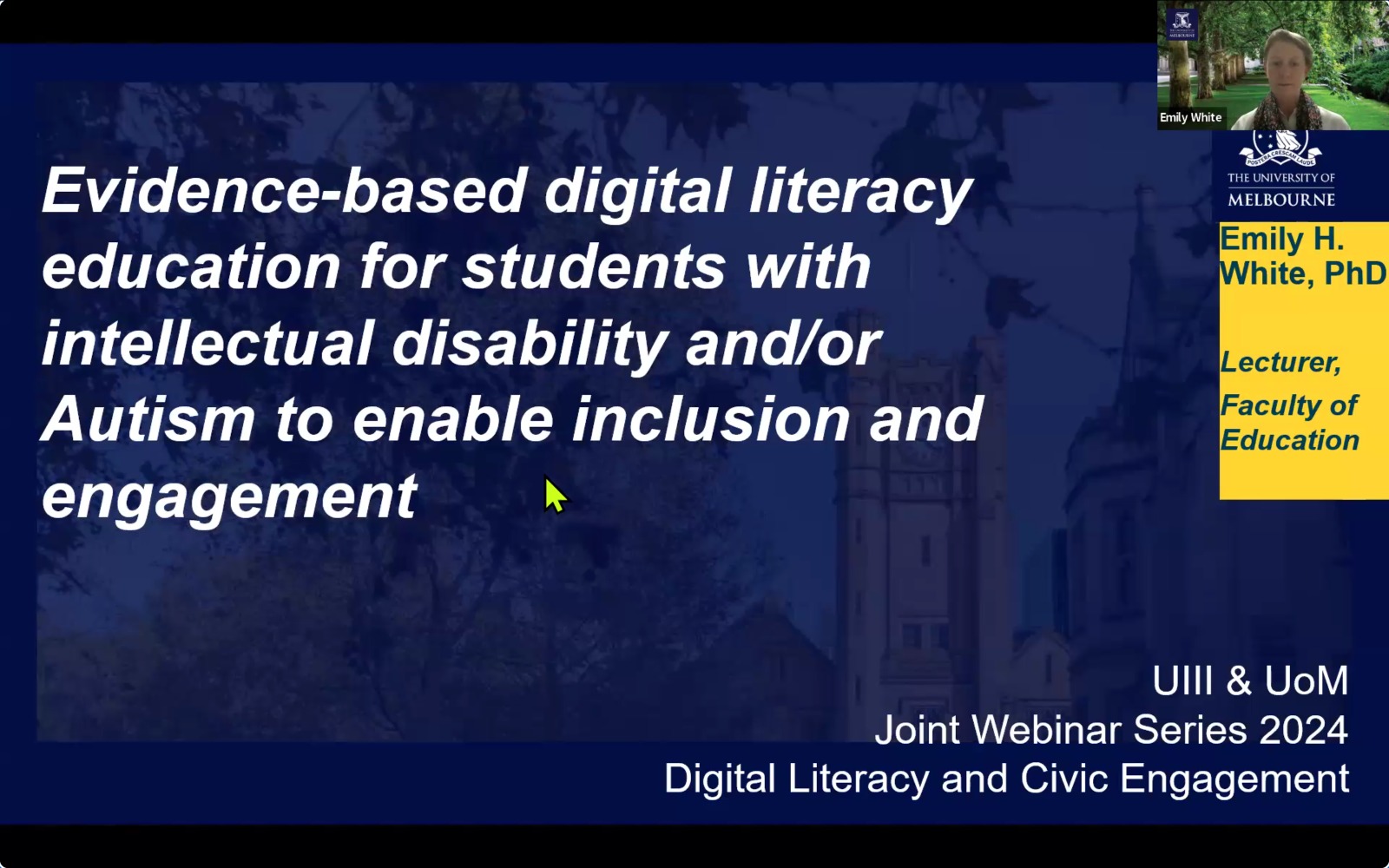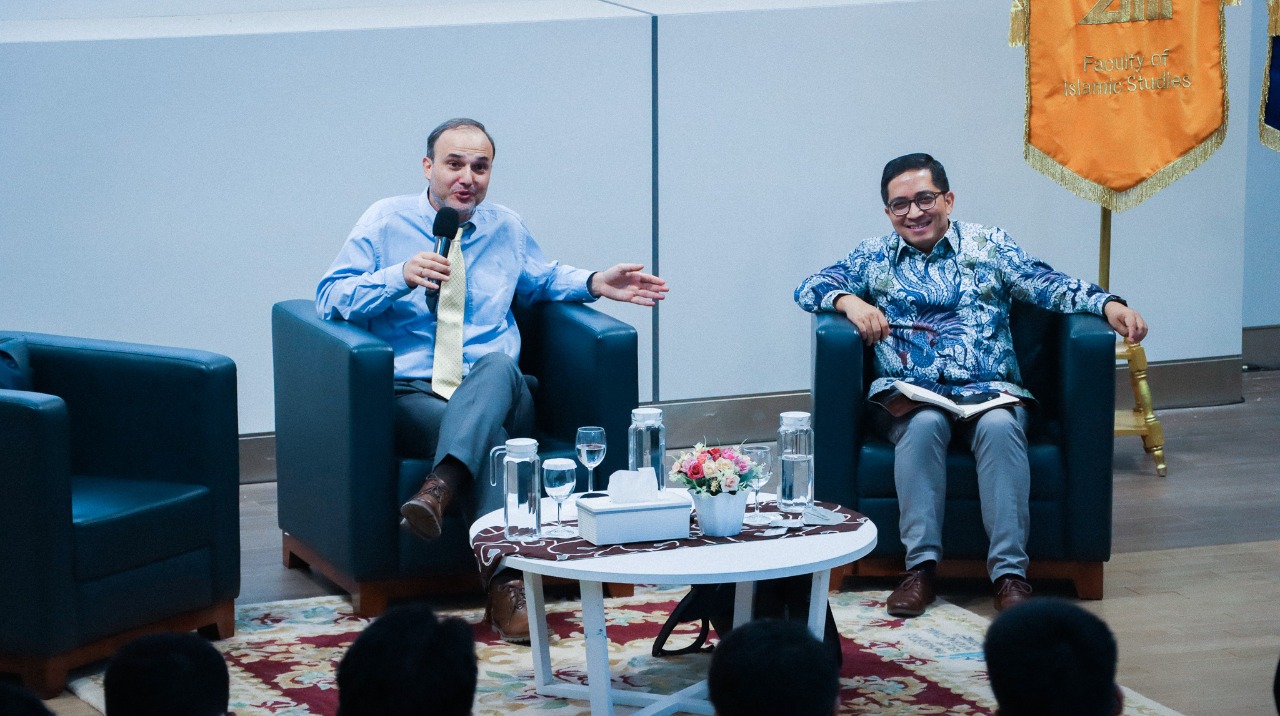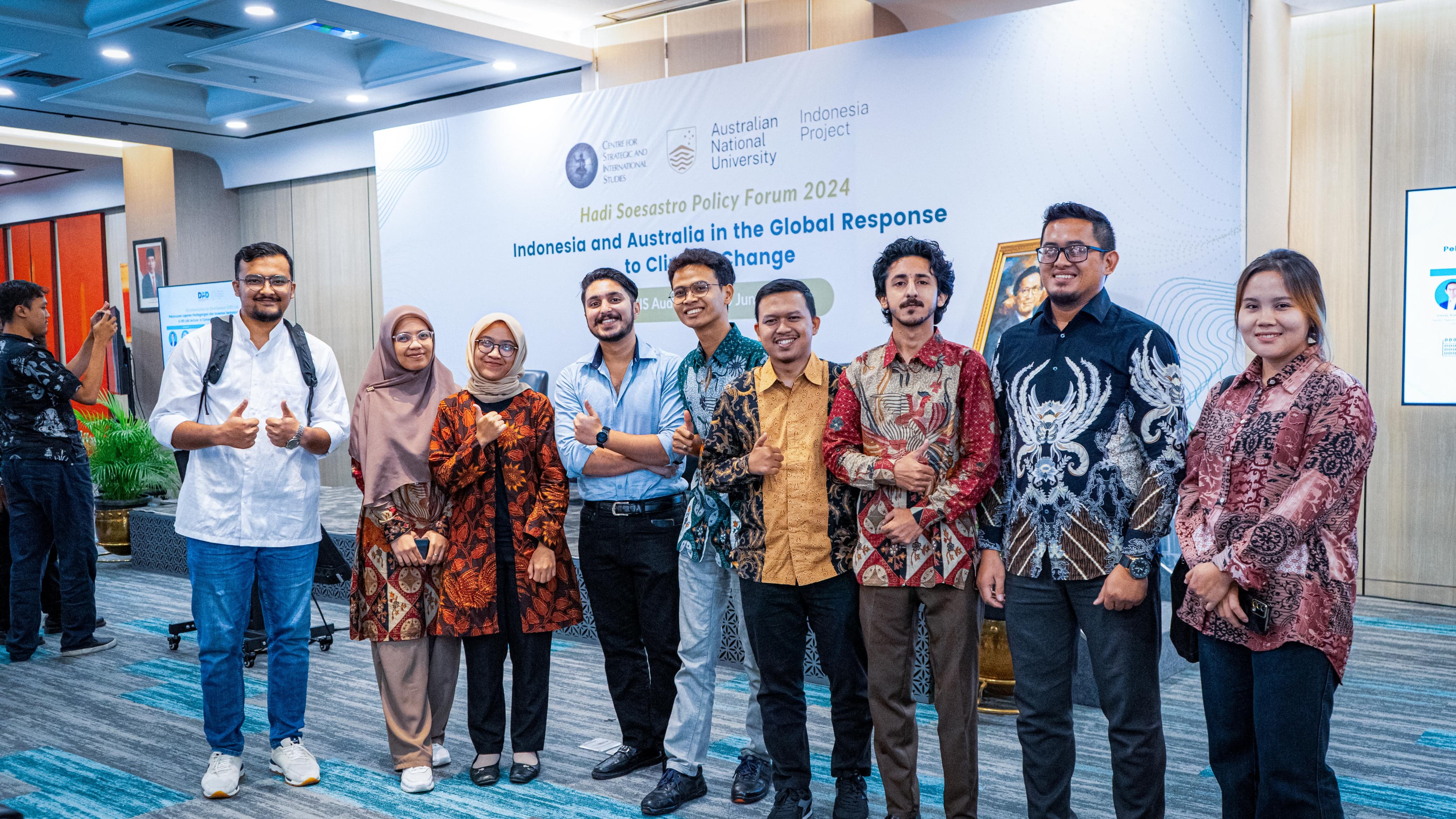What to Teach and How to Teach Effectively: UIII Expert’s Insight
July 24, 2023Contributor: Maroof Ahmed | Editor: Supriyono

A webinar titled 'Learning Progression: Enabling Teacher to Teach at the Right Level' was held on May 17, 2023, organized by the Australian Council for Educational Research (ACER) Indonesia, in collaboration with the Indonesian Education Evaluation Association (HEPI) and the Indonesian Psychometric Association (APSIMETRI).
Dr. Bahrul Hayat, Vice Rector of Universitas Islam Internasional Indonesia (UIII) for Academic, Student Affairs, and Human Resources, was among the experts who spoke at the event, along with Dr. Dara Ramalingam, Team Leader in Assessment and Reporting at ACER Indonesia.
Dr. Hayat's discussion focused on two fundamental questions in education: 'What to teach' and 'How to teach effectively’. He emphasized the political nature of defining educational goals and highlighted the multiple dimensions of education that encompass personal, economic, social, political, and cultural realms.
In his talk, Dr. Hayat offered a clear understanding of the progressive nature of learning, explaining how it occurred as a result of successive experiences. His perspectives on the organization of subject content, the importance of continuity in the curriculum, and the validation of task hierarchy, all emphasized the importance of a structured and systematic approach to education.
"Learning is the process of acquiring new knowledge, skills, and understanding, resulting in a relatively lasting change in behavior. Education is an organized system of learning," said Dr. Hayat, demonstrating the intertwined relationship between learning and teaching. Shedding light on the cognitive aspect of education, Dr. Hayat introduced Hierarchical Learning Theory. "Instruction consists of leading the learner through a sequence of statements and restatements of a problem or a body of knowledge that increases the learner’s ability to grasp, transform, and transfer what he or she is learning," he explained.
In the concluding segment of his presentation, Dr. Hayat discussed learning progression as a critical tool for enhancing the learning experience. He defined it as "a cognitive model that maps how learning develops over time in a discipline domain." The integration of learning progression into curriculum, teaching, and assessment can significantly enhance personalized and adaptive learning methodologies, thereby offering each student a more tailored and effective education. In the later part of the webinar, Dr. Ramalingam's detailed analysis aimed to illustrate the use of learning progressions in real-world educational settings.
"Learning progressions are descriptions of the successively more sophisticated ways of thinking about a topic that can follow one another as children learn about and investigate a topic over a broad span of time. They are crucially dependent on instructional practices if they are to occur," she explained.
Dr. Ramalingam further stressed the potential of learning progressions to identify learners' current knowledge levels and help them progress from that point. She highlighted their vital role in the four main elements of a school system, including curriculum, instruction, assessment, reporting, and teacher training and professional development.
Reflecting on historical and theoretical underpinnings, Dr. Ramalingam stated that learning progressions are not a novel concept but rather built upon a longstanding tradition of educational research. She also noted that different kinds of learning progressions are suited for different uses, making them an adaptable tool in an educational setting.
Dr. Ramalingam concluded by suggesting possible uses of learning progressions, including informing curriculum development and evaluation, guiding, and facilitating instruction, underpinning assessment, and providing a resource for teacher training and professional development.
Both esteemed scholars emphasized the importance and potential of learning progressions in the education system, showcasing how teaching methodologies could be optimized and student learning enhanced. Their insights clarified the adaptability of learning progressions, contributing to a broader understanding of the mechanisms through which personalized and adaptive learning can be fostered in the evolving educational landscape.
- Distinguished Moroccan Delegation Visits UIII to Discuss Academic Collaboration
- Football Fever at UIII, A Global Community Celebrates Indonesia’s Victory
- The Garuda Soars, Indonesia’s Historic Football Victory Inspires a Nation
- From Belgrade to Jakarta: Advancing Religious Moderation Through Global Cooperation
- UIII Strengthens Academic and Interfaith Cooperation at the Fifth Indonesia-Serbia Dialogue
- Dr. Philips J. Vermonte Appointed as Spokesperson for Foreign Affairs at Presidential Communication Office
- UIII Rector Highlights Education’s Role in Interfaith Dialogue at Serbia-Indonesia Forum
- UIII Partners with Sentra Medika Hospital for Health Facility Expansion
- UIII Joins National Quality Assurance Network to Enhance Accreditation
- How to Get Started with UIII’s New ‘TripleAiYou’ Mobile App


